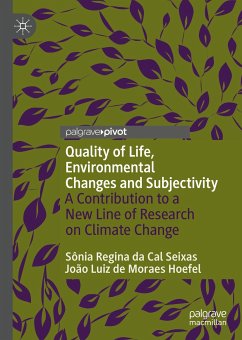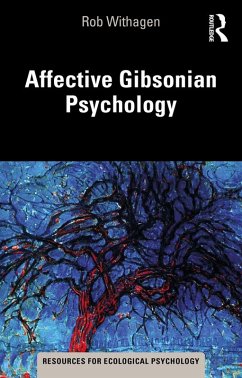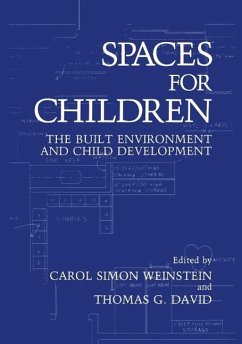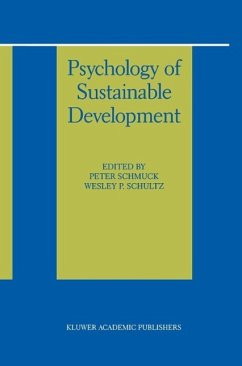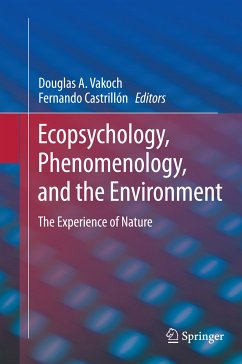
Ecopsychology, Phenomenology, and the Environment (eBook, PDF)
The Experience of Nature
Redaktion: Vakoch, Douglas A.; Castrillón, Fernando
Versandkostenfrei!
Sofort per Download lieferbar
80,95 €
inkl. MwSt.
Weitere Ausgaben:

PAYBACK Punkte
40 °P sammeln!
This book seeks to confront an apparent contradiction: that while we are constantly attending to environmental issues, we seem to be woefully out of touch with nature. The goal of Ecopsychology, Phenomenology and the Environment is to foster an enhanced awareness of nature that can lead us to new ways of relating to the environment, ultimately yielding more sustainable patterns of living. This volume is different from other books in the rapidly growing field of ecopsychology in its emphasis on phenomenological approaches, building on the work of phenomenological psychologists such as Maurice M...
This book seeks to confront an apparent contradiction: that while we are constantly attending to environmental issues, we seem to be woefully out of touch with nature. The goal of Ecopsychology, Phenomenology and the Environment is to foster an enhanced awareness of nature that can lead us to new ways of relating to the environment, ultimately yielding more sustainable patterns of living. This volume is different from other books in the rapidly growing field of ecopsychology in its emphasis on phenomenological approaches, building on the work of phenomenological psychologists such as Maurice Merleau-Ponty. This focus on phenomenological methodologies for articulating our direct experience of nature serves as a critical complement to the usual methodologies of environmental and conservation psychologists, who have emphasized quantitative research. Moreover, Ecopsychology, Phenomenology and the Environment is distinctive insofar as chapters by phenomenologically-sophisticated ecopsychologists are complemented by chapters written by phenomenological researchers of environmental issues with backgrounds in philosophy and geology, providing a breadth and depth of perspective not found in other works written exclusively by psychologists.
Dieser Download kann aus rechtlichen Gründen nur mit Rechnungsadresse in A, B, BG, CY, CZ, D, DK, EW, E, FIN, F, GR, HR, H, IRL, I, LT, L, LR, M, NL, PL, P, R, S, SLO, SK ausgeliefert werden.




